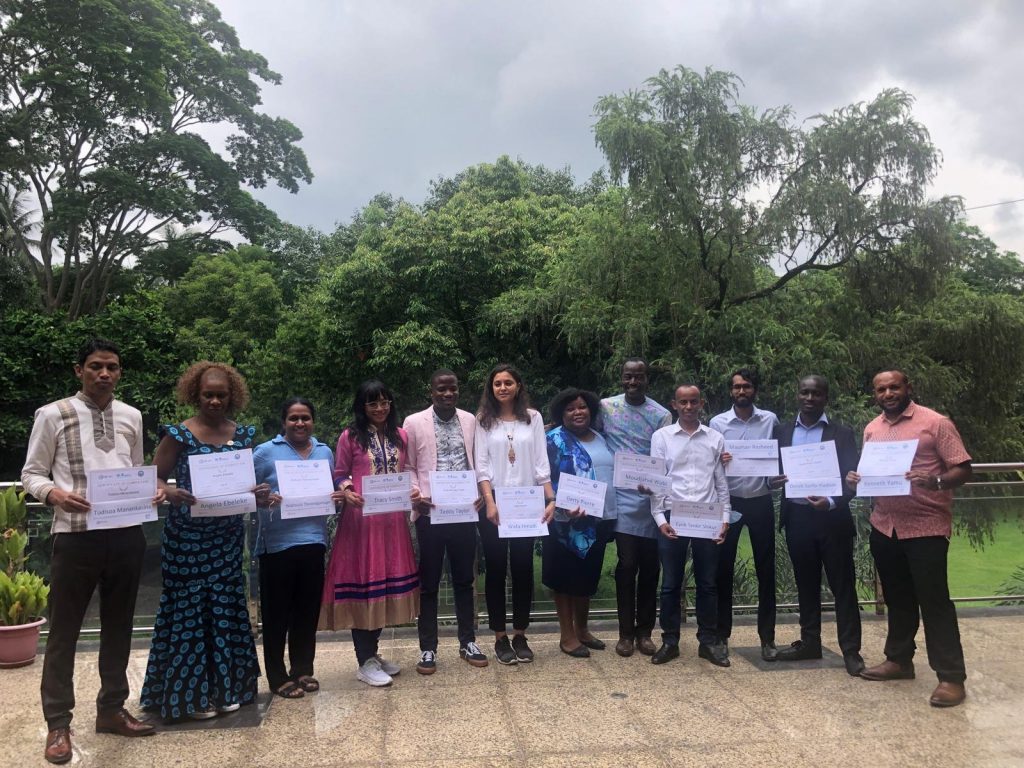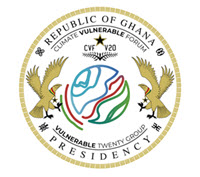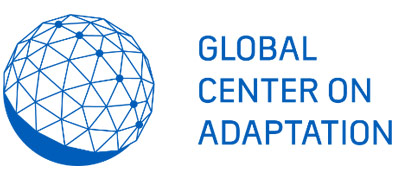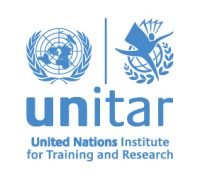
Overview
As part of its efforts to promote and drive ambitious climate action and to mobilize international support for climate threatened nations, the Climate Vulnerable Forum (CVF) has launched a “Capacity-Building Fellowship” for 15 participants selected from its member countries. A CVF collaboration of the Global Center on Adaptation (GCA) and the United Nations Institute for Training and Research (UNITAR), the program works to strengthen the capacities of the fellows and contribute to the development of national efforts to pursue strategic forum priorities on climate change in CVF member countries and in international policymaking. In addition, the participants are supported to be better positioned to raise awareness of the challenges and opportunities developing countries face and present as a result of climate change, in addition to assisting the CVF in advancing its priorities within UN processes including the UNFCCC and COP meetings.
Scope of the Fellowship
Member countries of the CVF are extremely vulnerable to climate change-induced catastrophes, despite their insignificant contribution to the causes and highly restricted capabilities for responding to climate challenges compared to larger, wealthier, and more responsible nations. Building the capacities of stakeholders in the area of climate change is one of many possible mechanisms to address such imbalances. Thus, the goal of this Fellowship is to ensure that CVF government officials/representatives can benefit from increased opportunities to understand, engage in and master representation and policy development activities on climate change. Accordingly, the Fellowship includes the following opportunities anchored in specific training sessions conducted by UNITAR throughout the year:
- A comprehensive training on relevant climate change policy topics (e.g., mitigation, adaptation, finance, loss and damage, Paris Agreement compliance, UNFCCC historical development, structure and procedures, international climate finance access, national policy-making on climate change, policy mainstreaming), and a UNFCCC negotiation simulation workshop;
- A media training on the skills required to disseminate information to a wider international audience outside of policy circles;
- A platform for publishing the fellows’ research related to climate change, and participation in a South-South community of climate change government representatives from the CVF to share and exchange experiences and knowledge;
- A real-life experience of climate change negotiations through sponsored participation in UNFCCC COP 27, and possibilities to join other key international climate change conferences*;
- A Professional UNITAR Certificate of Recognition upon completion of the Fellowship.
Learning Objectives
The Fellowship will last for one year, with an inaugural timeframe from April 2022 to February 2023. Subject to the experience of the inaugural Fellowship program, possibilities to extend the program for future years or to offer Fellowship extensions will also be explored. At the end of the Fellowship, the participants are expected to meet the below objectives:
- Understand the climate change negotiation process, including the Convention on Climate Change and the Paris Agreement;
- Adopt the lessons learned from global climate change fora to support the implementation of national climate policies;
- Gain the knowledge and skills needed to assist governments in accessing climate finance;
- Equip with the necessary communication skills to use media as a platform to raise awareness on the challenges posed by the changing climate.
2022 Fellowship Activities
The following activities are planned for the year 2022:
- Training on Climate Change Negotiations (May 2022);
- Media training (May 2022);
- Bonn Climate Change Conference (June 2022);
- Publication of reflections on the COP 27 expectations (October 2022);
- Training on Climate Change Negotiations in preparation for COP 27 (October 2022);
- Sharm el Sheik Climate Change Conference (November 2022);
- Publication of reflections on the outcomes of the COP 27 (November 2022);
- Any other activity organized by the Forum.
The application period is currently closed. A future fellowship will be advertised on the website in due course.
2022 FELLOWS
Ms. Angela Ebeleke
Ms. Angela Ebeleke is a National Gender and Climate Change Focal Point (NGCCFP) at the UNFCCC for the Democratic Republic of the Congo. Additionally, she also coordinates the Gender Department of the Dr. Ibenge Foundation. Recently, Ms. Ebeleke was appointed as a Course Guide by the Women Environment & Development Organization (WEDO). As a Course Guide, she contributes to facilitating virtual and in-person training for women climate negotiators for the least developed countries. Furthermore, she also works as a Phlebotomist and Manager at a corona test center aiding in the fight against the pandemic. Angela’s purpose on Earth is to implement solutions to obtain a healthier population and planet.
Angela Ebeleke
Mr. Derek Sarfo-Yiadom
Mr. Derek Sarfo-Yiadom is a Programme Officer at the Climate Change and Ozone Unit, a department at the Environmental Protection Agency (EPA) under the Ministry of Environment, Science, Technology and Innovation in the Republic of Ghana. He is a final year PhD candidate at the Institute of Environment and Sanitation, University of Ghana where he is currently conducting research on the Carbon Footprint in the Construction Industry. Areas that are of particularly heightened interest to him within the climate field include but are not limited to international policymaking, research and technical development, and international climate diplomatic negotiations.
Derek Sarfo-Yiadom
Mr. Eyob Tenkir
Mr. Eyob Tenkir is a Senior Environmental Safeguard Specialist at the National REDD+ Secretariat at Ethiopia’s Forest Development where he has worked since 2013. His educational background includes a MSc in Botanical Science and a BSc in General Forestry. As part of his work at the National REDD+ Secretariat, he has participated in and developed the National REDD+ Strategy, the REDD+ Consultation and Participation Document and the preparations of the Grievance Redress Mechanism for REDD+. He has furthered his expertise with various training in Forests and Climate Change, Forest and Biodiversity Data Analysis, Integrated Environmental Planning & Management, and Terrestrial Carbon Training.
Eyob Tenkir Shikur
Ms. Gerty Pierre
Ms. Gerty Pierre works as the head of the Climate Change Department in the Haitian Ministry of the Environment. Gerty is a biologist by profession and a current doctoral student in biological sciences with expertise in environmental health. In her role in the Haitian government, she has contributed to the development of policy briefs and strategic documents. The Climate Change Department works to produce decision support tools that facilitate planning for adaptation and mitigation of Climate Change as well as the development of national climate change policies. Her particular focus in environmental topics has been on the themes of climate adaptation and mitigation.
Gerty Pierre
Mr. Iván Alonso Delgado Pitti
Mr. Iván Alonso Delgado Pitti is the Adaptation Coordinator at the Ministry of Environment and Energy, Costa Rica. His background is as an environmental political scientist specializing in climate change. He is the founder of the Costa Rica Climate Change Directorate and has more than 18 years of experience in the creation of climate public policies. He has drafted the National Adaptation Policy of Costa Rica (2018-2030) and has worked on the creation of adaptation metrics together with indigenous communities and local governments. He has also served as a climate change negotiator for Costa Rica at several COPs. His areas of interest include climate justice, youth, citizen and indigenous participation and adaptation metrics.
Iván Alonso Delgado Pitti
Mr. Kenneth Yamu
Mr. Kenneth Yamu serves as the Assistant Secretary – Environment and Social Safeguards at the Department of Works and Highways in Port Moresby, Papua New Guinea. He holds a BSc in Environmental Science and Geographical Information Systems from the University of Papua New Guinea. Kenneth has extensive experience developing Environmental and Socio-economic impact assessments in the road infrastructure sector. Additionally, he has developed environmental and social safeguard policies for the Project Implementation Offices. He has grown an interest in climate change adaptation and financing, at COP26 he followed the areas of adaptation, finance, and loss and damage. He is now involved in contributing adaptation targets on infrastructure for the country’s NDC and NAP.
Kenneth Yamu
Ms. Kunzang
Ms. Kunzang works as the Head of the Legal Services at the National Environment Commission in Bhutan. She holds a Bachelor’s in Law from Pune University India, and a Master’s degree in Environmental Management from Yale University, USA. Her field of expertise is in the areas of climate change, EIA, waste and water management. As part of her official duties, she has coordinated the drafting of Bhutan’s water and waste acts and contributed towards national climate change policy as well as other areas of policy. In the UNFCCC process, she negotiates for the Least Developed Countries (LDC) group on capacity building and action on climate empowerment.
Kunzang
Mr. Mauman Abdul Rasheed
Mr. Mauman Abdul Rasheed is currently serving as Assistant Director at the Climate Change Department of the Ministry of Environment, Climate Change and Technology of the Maldives. Mauman holds a Master’s degree in Global Environmental Studies from Sophia University, Tokyo. The Ministry of Environment is responsible for implementing government policies, regulations, programmes and projects for the protection and management of the natural environment. He joined the Ministry in 2013 and is currently tasked with the implementation of the Maldives Nationally Determined Contribution (NDC) targets.
Mauman Abdul Rasheed
Mr. Moudjahid Akorédé Wabi
Mr. Moudjahid Akorédé Wabi is a Technical Assistant and the Alternate National Focal Point to the UNFCCC at the Ministry of Living and Sustainable Development in Benin. After completing a diploma in Agricultural Engineering from the University of Abomey-Calavi in Benin, he went on to attain an advanced Master’s degree in the Management of Livestock and Crop Resources in a Tropical Environment from the University of Liege in Belgium. Having spent over ten years in the climate negotiation processes, as part of his role as a Junior Negotiator he has worked on institutional framework and projects related to the Kyoto Protocol, Article 6 of the Paris Agreement, Nationally Determined Contributions (NDCs), climate finance and adaptation. Wabi’s areas of expertise include agriculture, climate change adaptation/mitigation and carbon markets.
Moudjahid Akorédé Wabi
Mr. Sum Cheat
Mr. Sum Cheat is the Chief of Office at the Department of Climate Change in the General Directorate of Policy and Strategy, Ministry of Environment, Cambodia. He has completed a Master’s Degree in International Relations from Khemarak University, Phnom Penh, Cambodia. He is acting as the main resource person to take lead in the session on climate change adaptation and policy framework on climate change. He has over 10 years of experience in climate change policy frameworks, policy advocacy, and climate change mainstreaming into national and sub-national planning.
Sum Cheat
Mr. Teddy P. Taylor
Mr. Teddy P. Taylor is the National Youth Coordinator and National Focal Point for the Action for Climate Empowerment (ACE) at the Environmental Protection Agency of Liberia. He has an educational background in Geology (BSc.). Teddy has over seven years of experience in climate change issues, firstly following the UNFCCC Youth and Children Constituency (YOUNGO) as a youth delegate and later focusing on adaptation, loss & damage. He has participated in several COPs as a member of the Liberian government delegation and was the founder and Executive Director of Liberia’s first youth-led, and youth-driven climate change organization, the Youth Climate Change Initiative (YCCI).
Teddy Penneku Taylor
Mr. Todisoa Manankasina
Mr. Todisoa Manankasina serves as the Head of the Carbon Fund and Externals Funding Department and National Designated Authority of Green Climate Fund of Madagascar. He is based within the National Bureau of Climate Change and Reduction of Emissions from Deforestation and Forest Degradation (REDD+)/Ministry of Environment and Sustainable Development in Nanisana Antananarivo, Madagascar. Todisoa has an educational background in Mechanics and Physics of the Environment/Natural Resources Economics and Policy. His areas of expertise focus on climate change, climate finance, project setup and management and capacity building.
Todisoa Manankasina
Ms. Tracy Smith
Ms. Tracy Smith is the Project Manager and Lead Coordinator at the Department of Environment and Climate Change in Guyana’s Office of the President and an Adjunct Professor at the University of Guyana. She has a Bachelor of Laws (LLB) from the University of Guyana and a Master’s in Public Policy (MPP) from the Korea Development Institute (KDI) of Public Policy and Management as well as a Master’s in Project Management (MPM). As the national focal point to the UNFCCC, GCF and AOSIS, her work supports the national environment and climate change efforts in Guyana including national reporting obligations to the UNFCCC. Her areas of interest include climate negotiations and climate finance.
Tracy Amanda Smith
Ms. Wafa Hmadi
Ms. Wafa Hmadi is a Junior Climate Negotiator with the Tunisian Ministry of Environment. Wafa holds a Bachelors’ Degree in Environmental Protection Sciences and a Master’s degree in Environmental Engineering. She was responsible for the Citizen Adaptation to Climate Change Project, the Green Climate Forum, and the Green Barometer project where she organized events and made documentaries that described the different types of pollution in 14 regions of Tunisia. Wafa has also served as an SDG ambassador for the Arab Youth Sustainable Development network and as a member of the Tunisian delegation from COPs22 to COP26 as well as carrying out many initiatives relating to environmental activism.
Wafa Hmadi
Ms. Wathsala Thiranagamage
Ms. Wathsala Thiranagamage is a Development Officer at the Ministry of Environment, in Battaramulla, Sri Lanka. Wathsala‘s educational background includes a B.Sc. in Zoology (Hons), University of Delhi as well as an M.Sc. in Analytical Chemistry from the University of Peradeniya. Her main focus at present is work in the area of climate adaptation. In her current role, she is working on the implementation of Nationally Determined Contributions for the Industry Sector as well as the implementation of NDCs in the waste sector. She is particularly interested in the emerging topic of loss and damage.



